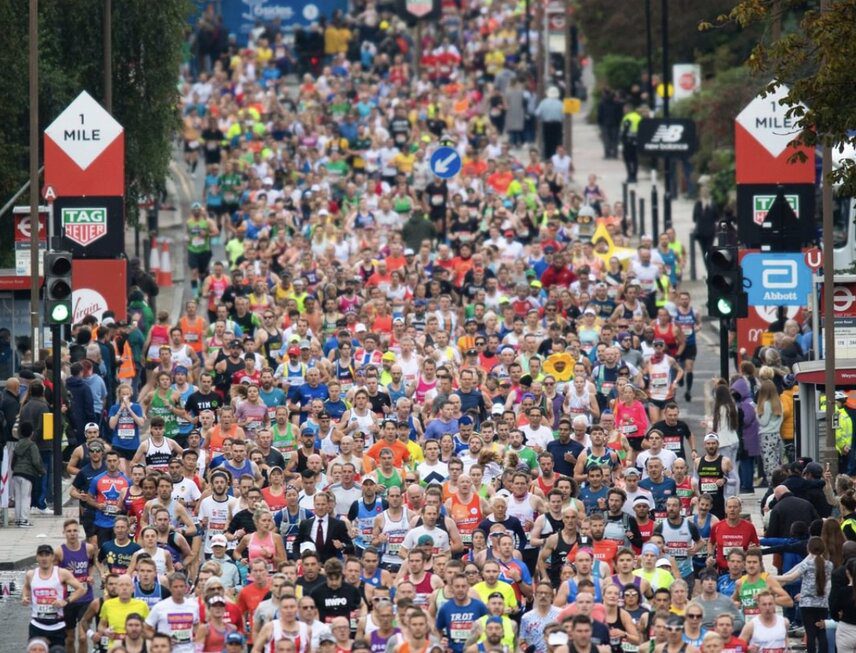Should you run the day before your race?
Three Canadian coaches share their opinions

There’s a lot of confusion surrounding what you should do before your goal race. After spending weeks or even months training, the last thing you want to do is jeopardize your chances at a new PB by doing too much–or too little–the day before you toe the start line. We spoke to three professional coaches: Olympian Dylan Wykes, marathoner and chiropractor Brittany Moran and 5,000m Olympian Jessica O’Connell, who gave their best advice for how runners can best prepare the day before their goal race.
Yes, you should
All three coaches agreed you should run the day before your race. While this may seem counterintuitive, there are a few reasons why a short run the day before your race is almost always a great idea. Physically, a shakeout run can help prep your body for the next day. “A bit of movement goes a long way to keep your legs feeling loose and springy without tiring you out,” says O’Connell.

This shakeout run should be run at a very easy pace. “Obviously at this stage there is no fitness that is going to be gained and no need to prove to anyone what sort of shape you’re in,” says Wykes. “But, if you’ve trained well and tapered properly, a short run the day before the race isn’t going to negatively impact your race-day performance. It can help to just remind the body a little bit about what’s to come.”
The shakeout run is also an opportunity to do some mobility work the day before the race. “I love the shakeout run as a way to get nice and warm, so you can do some good-quality mobility work to make sure everything is feeling good for the big day,” says Moran.

Wykes adds that dynamic mobility drills and strides are particularly beneficial for races that are 10K or shorter. “In very unscientific terms, those drills and strides help to wake up the body and get it primed for race day the following day,” he says.
Psychological benefits of a pre-race-day jog
“The day before the race often brings with it lots of nerves and anxious energy,” says Moran. “Going for a short and easy run is a great way to work some of that out.”
Wykes agrees, adding that the day before many large road races, you’ll see several running groups doing organized shakeout runs. “At M2M (Mile2Marathon), we try to organize these runs for our athletes at as many races as possible,” he says. “We find these are great to help people let out a bit of stress, as they connect with teammates or meet new people and maybe spend a few minutes getting out of their own heads, smiling and laughing.”
He adds that runners tend to spend a lot of time obsessing and stressing about little things in the final 24 hours before the gun goes off. Even if you’re not meeting a group the day before the race, it’s a good opportunity to get centred and to calm your nerves.
How far should you run?
The answer depends on the length of your race and your experience as a runner, or your experience at that distance. According to the coaches, a pre-race-day run could be as short as 15-20 minutes, or upward of 30 minutes or longer. “Depending on the race distance, we usually recommend anything from a 3-8K run and maybe even some dynamic warmup drills, and race-pace or faster strides,” says Wykes. Moran likes to do an easy 5K the day before races, with short, 20-second strides built into her run.

So if you don’t have a coach, how do you decide how long you should run? If you’re a beginner runner or you’re racing a new distance for the first time, it’s best to keep your run shorter. Try 15-20 minutes at an easy pace to get your legs moving, followed by some light stretching and mobility. If you’re a more experienced runner, you can go a little longer.
Once you’ve done your pre-race run and mobility work, it’s time to relax. “The athlete should make every effort to rest and put their feet up, especially if running a longer race [such as a half-marathon or marathon],” says Moran. “Be sure to consider both mental and physical rest before the race. Ideally, go to any expos or bib pick-ups two days before the race, rather than the day before.” You don’t want to spend hours wandering around and tiring yourself out the day before the big day.

Finally, if you don’t feel great during your shakeout run, O’Connell says not to stress too much about it. “Nerves and travel fatigue can cloud your perception, and that is normal!” she says. “Trust in the training you’ve done, and believe that you are ready to roll.”
The bottom line
Whether you’re new to running or you’re a seasoned vet, whether you’re racing a 5K or a marathon, you should go for a short, easy run the day before your race. Not only will it help to prime your body for the work ahead, but it will also help to calm your mind and get rid of some race day jitters. Just keep the pace nice and easy, and try to enjoy the process. Racing, after all, is supposed to be fun.


